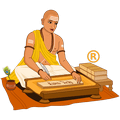























Sunrise04:14
Sunset19:48
Moonrise00:05, Jun 11
Moonset08:55
Shaka Samvat-0605 Shrimukha
Vikram Samvat-0470 Pingala
Gujarati Samvat-0471 Tarana
Amanta MonthAshadha
Purnimanta MonthShravana
WeekdayMangalawara
PakshaKrishna Paksha
TithiPanchami upto 08:55
NakshatraPurva Bhadrapada upto 16:08
YogaShobhana upto 22:28
KaranaTaitila upto 08:55
KaranaGaraja upto 20:26
Pravishte/Gate1
SunsignMithuna upto 03:12, Jun 11
Rahu Kalam15:54 to 17:51
Gulikai Kalam12:01 to 13:58
Yamaganda08:07 to 10:04
Abhijit11:30 to 12:32
Dur Muhurtam07:21 to 08:23
Dur Muhurtam23:10 to 23:44
Amrit Kalam08:19 to 09:53
Varjyam01:51, Jun 11 to 03:28, Jun 11
Notes: All timings are represented in 24-hour notation in local time of Weston, United States with DST adjustment (if applicable).
Hours which are past midnight are suffixed with next day date. In Panchang day starts and ends with sunrise.


 Tula
Tula Swati 13:32
Swati 13:32

 Dhanu
Dhanu P Ashadha 25:08+
P Ashadha 25:08+

 Makara
Makara Shravana 19:57
Shravana 19:57

 Makara 06:54
Makara 06:54 Dhanishtha 18:00
Dhanishtha 18:00

 Kumbha
Kumbha Shatabhisha 16:41
Shatabhisha 16:41

 Meena
Meena U Bhadrapada 16:25
U Bhadrapada 16:25

 Meena 17:32
Meena 17:32 Revati 17:32
Revati 17:32

 Mesha
Mesha Ashwini 19:24
Ashwini 19:24

 Mesha
Mesha Bharani 21:54
Bharani 21:54

 Mesha 04:36
Mesha 04:36 Krittika 24:49+
Krittika 24:49+

 Mithuna
Mithuna Mrigashira 07:07
Mrigashira 07:07

 Mithuna
Mithuna Ardra 10:08
Ardra 10:08

 Mithuna 06:13
Mithuna 06:13 Punarvasu 12:52
Punarvasu 12:52

 Simha 26:24+
Simha 26:24+ P Phalguni 20:09
P Phalguni 20:09

 Kanya 09:18
Kanya 09:18 Chitra 21:11
Chitra 21:11

 Tula
Tula Swati 20:35
Swati 20:35

 Tula 13:49
Tula 13:49 Vishakha 19:30
Vishakha 19:30

 Vrishchika
Vrishchika Anuradha 17:58
Anuradha 17:58

 Dhanu 16:40
Dhanu 16:40 P Ashadha 11:18
P Ashadha 11:18In Hindu Calendar, the day starts with local sunrise and ends with next day local sunrise. As sunrise time is different for all cities, Hindu Calendar made for one city is not valid for any other city. Hence it is important to use location based Hindu Calendar, like this website. Further, each Hindu day consists of five elements, which are called angas. These five elements are -
In Hindu Calendar, all five elements together are called Panchang. (In Sanskrit: Panchang = Pancha (five) + Ang (part)). Hence Hindu Calendar which shows all five elements for each day is called Panchang. In South India Panchang is known as Panchangam.
When Hindu Calendar includes Muslims, Sikh, Christian, Buddhist and Jain festivals, including national holidays, it is called as Indian Calendar.